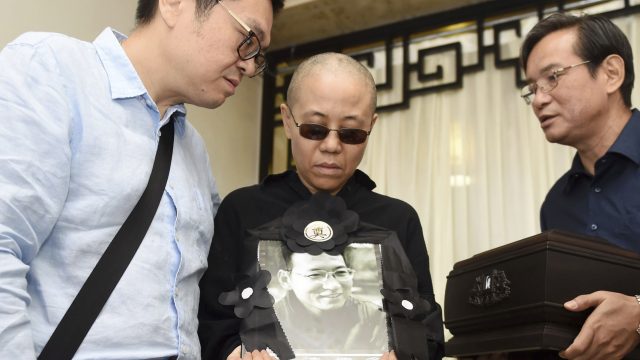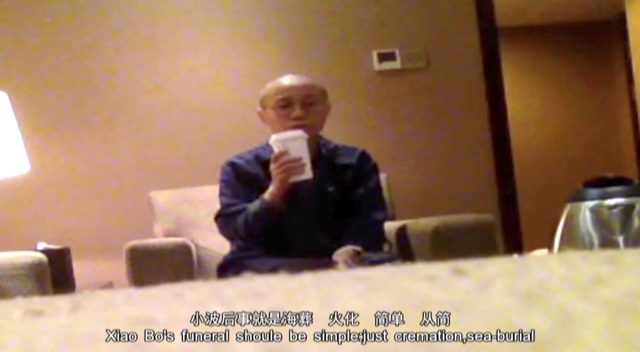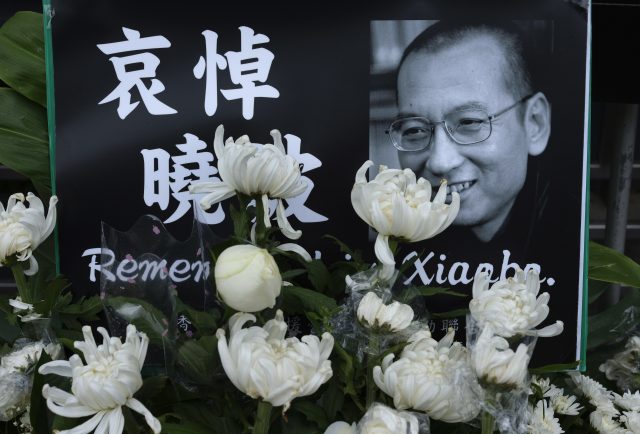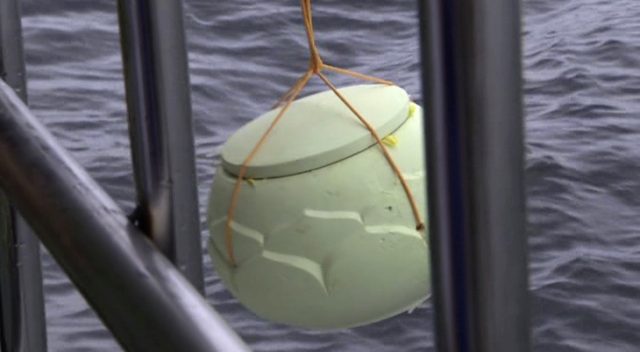Family commit ashes of jailed Chinese Nobel laureate to sea
China’s best-known political prisoner Liu Xiaobo died from multiple organ after a battle with liver cancer while serving an 11-year sentence.

Family members of Liu Xiaobo have scattered the ashes of the Nobel Peace Prize laureate into the sea following his death from cancer this week while in custody, Chinese officials say.
Mr Liu’s supporters say the move was intended by the authoritarian government to permanently erase any traces of China’s best-known political prisoner.
A spokesman for the north-eastern city of Shenyang, where Mr Liu died, told reporters that the sea burial took place on Saturday at noon, just hours after his cremation.

Speaking to reporters at the news briefing, Mr Liu’s elder brother thanked the ruling Communist Party and the government for its handling of his brother’s funeral.
The brother is regarded by Mr Liu’s friends as having long been unsupportive of his political advocacy. Mr Liu died on Thursday from multiple organ failure.
The government held two briefings on Saturday and provided images of the funeral and the sea burial, the latest moves in a Chinese government propaganda campaign seemingly aimed at countering criticism that Beijing has failed to handle Mr Liu’s deterioration and dying wishes in a humanitarian way.

A video about Mr Liu’s hospital treatment released on the website of Shenyang’s judicial bureau on Friday appeared aimed at the same objective.
Activists and friends of the family said the sea burial appeared to be Beijing’s way of removing every last physical trace of Mr Liu.
It also removes the need for a land-based grave at which his supporters would have been able to pay their respects.
“The government’s thinking is that in this way, they can destroy the body and remove all traces of him,” dissident and family friend Hu Jia said.

“After all, he’s a Nobel Peace Prize laureate and he died after being suppressed by the authorities,” Mr Hu said. “The authorities are very worried a grave would be the focal point of the public’s actions to memorialise him, which could easily turn into protests.”
Mr Liu’s wife and other family members have been closely guarded by authorities and remain largely out of contact with the outside world even after his death.
Governments around the world have urged China to free his wife, Liu Xia, from the strict house arrest she has lived under for years even though she has not been convicted of any crime.

Handout images showed Liu Xia, who wore dark sunglasses, being comforted by her brother in a funeral parlour as they stood in a row with Mr Liu’s older and younger siblings and their wives.
In Shenyang, a spokesman for the city’s information office said at the briefing that authorities were looking out for Liu Xia’s interests and insisted that she is free.
“As far as I know, Liu Xia has freedom. But she just lost her relative and is in deep sorrow,” spokesman Zhang Qingyang said. “After Liu Xiaobo’s death, let Liu Xia tend to his affairs and try to keep her away from external interference.”

Mr Liu was only the second Nobel Peace Prize winner to die in prison, a fact pointed to by human rights groups as an indication of the Chinese Communist Party’s increasingly hard line against its critics.
He rose to prominence during the 1989 pro-democracy protests centred in Beijing’s Tiananmen Square.
He was sentenced to 11 years in prison in 2009 for co-authoring “Charter 08,” a document that called for an end to one-party rule in China. He was in prison when he was awarded the Nobel in 2010, which Beijing condemned as an affront to its political and legal systems.





